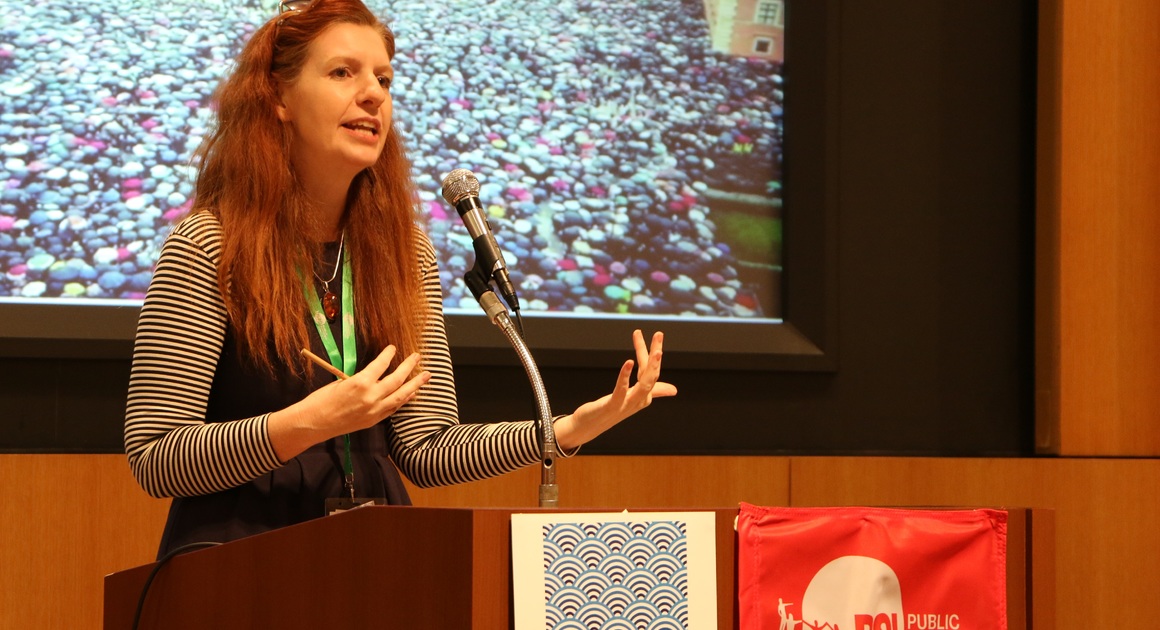
Community Health Workers Unite for Recognition, Rights, and Respect
Aug 23, 2023
- Read this in:
- en
Community Health Workers (CHWs) across South Asia have joined forces to demand recognition, rights, and respect for their vital contributions to public health. Hailing from diverse backgrounds, they are known as Accredited Social Health Activists (ASHA), Anganwadi Workers (AWWs), Lady Health Workers (LHWs), and Female Community Health Volunteers (FCHVs). CHWs are predominantly women. These dedicated women are the first point of contact between communities and the primary health care system.
On August 22, 2023, CHWs of three South Asian countries – Nepal, India and Pakistan – launched a Charter of Demands urging the governments and international agencies to respect, protect and promote their rights as workers. The Charter is being supported by the Global Union Federation, Public Services International. Currently, the CHWs are not considered employees and lack even basic benefits that public sector employees are entitled to such as maternity leave, sick leave, overtime payment, pension etc. In most cases, they are even denied a wage and receive honorariums and incentives, much lower than the minimum wage.
The International Labour Organisation (ILO) also recognises the lack of access to decent work experienced by CHWs and has committed to building a knowledge base for the same. In its March 2022 report “Securing decent work for nursing personnel and domestic workers, key actors in the care economy”, the expert Committee of the ILO noted:
The Committee considers that it may be useful for the Office to undertake studies regarding the situation of (Community Health Workers) … that, while [they are undoubtedly covered by the fundamental rights and principles at work], may not always be afforded the protections envisaged … to afford them access to decent work.
“As the unsung heroes on the frontline, CHWs play an essential role in health education, monitoring, and vaccination programs. Working in the community, they are the primary messengers of government policies and campaigns among common people. They have been the backbone for improvements in maternal and infant mortality rates across nations. They provide nutrition to young mothers and children. They identify cases of diseases like tuberculosis, diabetes and hypertension in the community. And they do all of this while walking for hours every day and support the people who need it. Their untiring efforts during Covid-19 reinforced the importance of the work they do. Yet, they often toil in the shadows, facing inadequate protective measures, insufficient support, and meager wages. We hope that the governments consider the Charter of Demands launched today and improve working conditions of the CHWs,” said Kate Lappin, Regional Secretary for Asia Pacific, Public Services International.
Kate Lappin Regional Secretary, PSI Asia & Pacific

As the unsung heroes on the frontline, CHWs play an essential role in health education, monitoring, and vaccination programs. Working in the community, they are the primary messengers of government policies and campaigns among common people.
An important demand of the CHWs is official recognition as public health workers and the entitlement to fair wages and benefits. "Our work is essential to the health and well-being of our communities, yet we have been working without proper recognition or even a minimum wage. Our Charter demands that we should be paid equal to or above prevailing minimum wages, negotiated in collaboration with our unions. It also demands overtime compensation, job security, pensions and healthcare for us - just like other workers receive,” said Gita Thing, President, Nepal Volunteers Association.
The Covid-19 pandemic underscored the need for robust safety measures for CHWs. The Charter demands adequate protective equipment, proper training, and stringent safety protocols.
CHWs are insisting on being included in decision-making processes that impact their work. "We are the experts on the ground, and our voices must be heard in shaping health policies. The Charter calls for CHW representation on national policy-making committees and recognizes CHW unions as vital partners in social dialogue. This democratic engagement would ensure that policies align with the real-world needs of CHWs and the communities they serve. We are not just workers; we are essential to the health of our nations,” emphasised Archana Mishra, an ASHA worker from Kanpur, Uttar Pradesh, India. She is a prominent leader with Hind Mahila Sabha, a union of women in the unorganised sector.
“We are advocating for comprehensive healthcare coverage, regular disease testing, and mental health support. The Charter insists on decent working conditions, manageable work hours, and legal protections such as paid sick leave and mandated maternity leave. In addition, harassment and discrimination against CHWs must cease. The charter urges governments to create safe work environments, establish complaints committees, and launch public education campaigns to counter stigma. Our well-being matters, and we deserve the right to care," said Iram Fatima, Chairperson, Punjab Ladies Health Workers Union, Pakistan.
Governments must prioritize health over wealth, the Charter asserts. It calls for increased public health budgets, universal public health systems, transparent hiring processes, and fair taxation.
By addressing these fundamental needs, governments can ensure the well-being of CHWs and strengthen the foundation of public health systems. It's time to acknowledge and support these unsung heroes who tirelessly serve our communities.